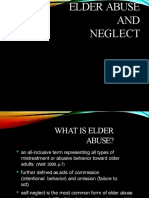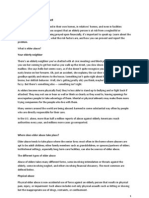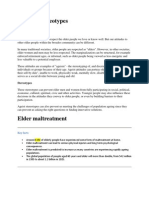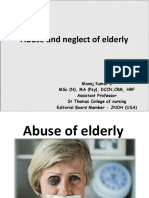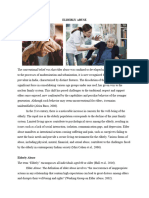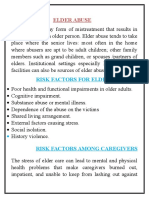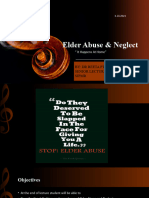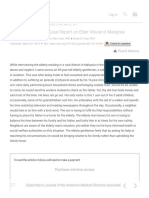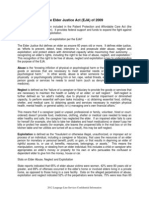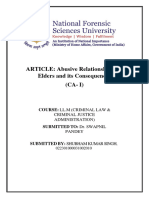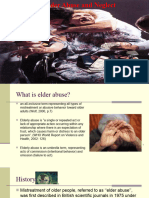0% found this document useful (0 votes)
25 views1 pageAssignment One
The document highlights the struggles of elderly and disabled individuals facing abuse from caregivers or family members, emphasizing their dependency on these individuals for basic needs. Fear of isolation, disbelief, and lack of accessible support services prevent them from reporting the abuse. These personal stories illustrate the complex barriers that hinder their ability to seek help and assert their rights.
Uploaded by
Bett BKCopyright
© © All Rights Reserved
We take content rights seriously. If you suspect this is your content, claim it here.
Available Formats
Download as DOCX, PDF, TXT or read online on Scribd
0% found this document useful (0 votes)
25 views1 pageAssignment One
The document highlights the struggles of elderly and disabled individuals facing abuse from caregivers or family members, emphasizing their dependency on these individuals for basic needs. Fear of isolation, disbelief, and lack of accessible support services prevent them from reporting the abuse. These personal stories illustrate the complex barriers that hinder their ability to seek help and assert their rights.
Uploaded by
Bett BKCopyright
© © All Rights Reserved
We take content rights seriously. If you suspect this is your content, claim it here.
Available Formats
Download as DOCX, PDF, TXT or read online on Scribd
/ 1



